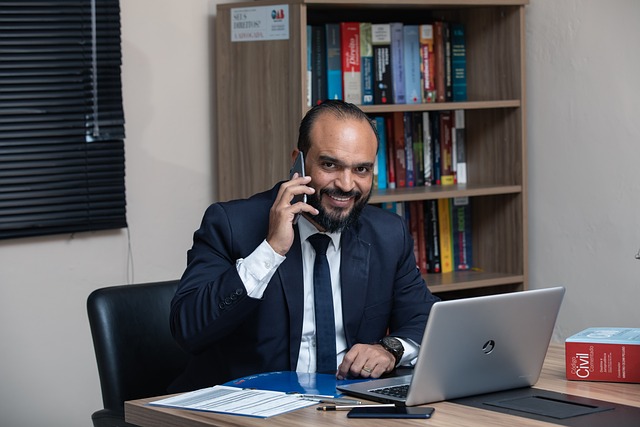For a businessman intent on securing his legacy and ensuring the continuity of his company posthumously, crafting a bespoke will is essential. This process involves strategic planning, open dialogue within the family, and the guidance of a skilled lawyer to align the will with the businessman's vision and legal requirements. A family meeting dedicated to estate planning can be structured like a business meeting, ensuring clear communication and addressing concerns in a productive environment. The lawyer's role is pivotal, offering expertise to navigate estate law, anticipate potential litigation risks, and safeguard the family's interests. They guide the businessman in articulating his desires for asset distribution and succession planning with precision, ensuring the will serves as an effective roadmap. This proactive approach not only protects against future legal complications but also upholds the company's legacy and the family's rights, avoiding contentious courtroom disputes over estate or business assets. Regular family meetings to discuss and update these plans are crucial for clarity and conflict avoidance, with the lawyer's input being invaluable in ensuring the will reflects the current intentions of the businessman, thus preserving his legacy and the company's future.
A businessman’s foresight is pivotal in safeguarding not only his enterprise but also his family’s future. Crafting a custom will transcends mere financial planning; it is a profound statement of one’s legacy and wishes. This article delves into the essential steps every business-owning individual must take to ensure their life’s work continues as intended, and their loved ones are provided for. From orchestrating a pivotal family meeting to understanding the critical role a lawyer plays in drafting your will, learn how these actions can prevent potential courtroom battles among heirs and successors. Secure your legacy with precision and peace of mind.
- Securing Your Legacy: How a Businessman Can Craft a Custom Will with a Family Meeting
- Navigating the Complexities: A Lawyer's Role in Drafting Your Family's Will
- From Business Meetings to Family Agreements: Ensuring Your Will Reflects Your Wishes
- Courtroom Averting: How a Custom Will Prevents Disputes Among Heirs and Company Successors
Securing Your Legacy: How a Businessman Can Craft a Custom Will with a Family Meeting

In the pursuit of safeguarding one’s business and personal legacy, a strategic approach is crucial for a businessman. A pivotal step in this process is crafting a custom will that aligns with his interests and the intricacies of his company. This involves meticulous planning and open dialogue within the family setting. Organizing a family meeting to discuss estate planning can be as effective as any business meeting, providing an opportunity to convey intentions and address concerns in a structured environment. It is here that the guidance of a skilled lawyer becomes indispensable, ensuring that all legalities are addressed, from asset allocation to succession planning, thereby avoiding potential pitfalls in the courtroom.
The role of a lawyer in this scenario cannot be overstated; they serve as the bridge between the businessman’s vision and its practical implementation within the confines of the law. Their expertise ensures that the custom will not only reflects the businessman’s aspirations for his company but also respects the rights and interests of his family. By facilitating a comprehensive discussion, the lawyer helps the businessman articulate his wishes with clarity, thereby creating a roadmap for the future administration of his estate and business affairs. This proactive approach not only secures the legacy of the business but also provides peace of mind, knowing that the family’s interests are safeguarded through a legally sound and well-considered will.
Navigating the Complexities: A Lawyer's Role in Drafting Your Family's Will

In the realm of legal documentation, a lawyer’s expertise is paramount when it comes to drafting a custom will that secures a family’s future. A skilled lawyer acts as a guiding force, ensuring that all legal stipulations are adhered to while tailoring the document to the unique needs and circumstances of the family. This meticulous process involves not only a thorough understanding of estate law but also a commitment to translating the wishes of the businessman into a legally binding testament. The lawyer’s role transcends mere drafting; it encompasses navigating complex legal frameworks, anticipating potential challenges in a courtroom setting, and safeguarding the interests of the family unit. In a family meeting, the lawyer will elucidate options and implications, facilitating informed decisions that reflect the businessman’s intentions for their assets and heirs posthumously. This collaborative process ensures that when the time comes, the family’s directives are honored without contention or complication, thereby providing peace of mind and a clear path forward for generations to come.
The drafting of a custom will is not a task to be taken lightly, nor is it a process that should be attempted by amateurs. A lawyer’s involvement is critical in ensuring that the will stands up to scrutiny in a courtroom setting and reflects the true intentions of the businessman. This includes clarifying any ambiguities within the document, which could otherwise lead to disputes among heirs or between the family and external parties. The lawyer’s role is to anticipate and preemptively address these potential issues, thereby minimizing the risk of legal challenges that could arise after the businessman’s passing. In essence, the lawyer acts as a shield for the family, providing a layer of protection against the complexities that can accompany estate distribution. This proactive stance not only safeguards the family’s legacy but also upholds the integrity and continuity of any businesses the deceased may have owned or operated.
From Business Meetings to Family Agreements: Ensuring Your Will Reflects Your Wishes

A well-crafted will is the cornerstone of any businessman’s legacy plan, ensuring that his company and family are cared for according to his wishes upon his passing. In the event of a businessman’s demise, a custom will can serve as a guiding document, outlining the succession plans for his company and specifying how assets should be distributed among heirs. It is imperative that this critical legal instrument is not only drafted by a competent lawyer but also reflects the businessman’s current intentions and circumstances. Regular family meetings can provide an opportunity to discuss and update these wishes, ensuring clarity and reducing potential for conflict later on. These gatherings allow for open dialogue about future plans, including the management of the company, and can help prevent disputes that might otherwise arise in a courtroom setting, where judgments may not align with the deceased’s original vision.
A businessman’s role extends beyond the boardroom; it is also crucial to consider how personal and business affairs will be managed should he become incapacitated. A comprehensive will can appoint trusted individuals to manage affairs on behalf of the family, should such a scenario occur. This preemptive strategy not only safeguards the company but also provides peace of mind for the family, knowing that their interests and the business are both protected by a well-structured legal document. Engaging with a lawyer to draft this will is a prudent step, as it ensures that all eventualities are anticipated and addressed within the context of the law, thereby preventing potential complications or disputes in the future.
Courtroom Averting: How a Custom Will Prevents Disputes Among Heirs and Company Successors

A custom will serves as a cornerstone for safeguarding both a businessman’s and a family’s future interests, acting as a catalyst to prevent potential disputes among heirs and company successors. In the event of an entrepreneur’s untimely passing, a well-drafted will can significantly reduce the likelihood of contentious courtroom battles over estate or business assets. It delineates the owner’s wishes with clarity, sparing the family from the stress of protracted legal proceedings. Similarly, in a family setting, a custom will can be the linchpin for harmonious succession planning, ensuring that each heir’s rights and expectations are clearly outlined and understood. This proactive approach often leads to fewer instances where a lawyer must navigate the intricacies of litigation on behalf of a grieving family, thereby averting the needless drama that can accompany such sensitive matters. By facilitating a structured family meeting before the will is drafted, all parties can voice their concerns and reach a consensus under professional guidance, further reducing the likelihood of future disputes and ensuring that the company’s legacy endures as intended by the businessman.
In conclusion, securing your legacy as a businessman transcends mere financial planning; it involves meticulous preparation and clear communication through a custom will. By initiating a family meeting to discuss your wishes, you set the foundation for a comprehensive estate plan that reflects your values and intentions. Engaging a lawyer is pivotal in navigating the intricate legalities, ensuring your will is drafted with precision and foresight. Such proactive measures can forestall potential disputes in the courtroom by clearly delineating your company’s succession and your heirs’ inheritance. A well-crafted custom will not only solidifies your business legacy but also safeguards your family’s future, providing peace of mind for all parties involved.



